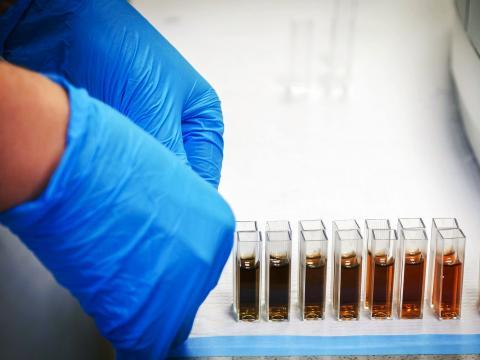
BMC Seminar Thursday 2nd of December, 12:00 on Zoom.
Speaker: Qiong Wang, PhD student supervised by Prof. Óttar Rolfsson at the Center for Systems Biology, Biomedical Center, Faculty of Medicine, School of Health Sciences, University of Iceland
Title: Proteomics reveals that GFPT2 and UGDH, two enzymes in glycan metabolism, are upregulated in breast epithelial-mesenchymal transition (EMT).
Abstract: Epithelial-mesenchymal transition (EMT) is a core developmental process involved in embryogenesis, wounding healing, organ fibrosis, and oncogenesis. During EMT, polarized epithelial cells assume mesenchymal-like phenotypes through degradation of the extracellular matrix, loss of adhesion, and increased mobility. It is believed that tumor cells can hijack the natural EMT biological process to facilitate cancer metastasis. EMT is not a binary switch from epithelial cells to mesenchymal cells but contains a spectrum of epithelial-mesenchymal intermediate states that impart different degrees of malignancy, which is termed epithelial-mesenchymal plasticity (EMP). Metabolic reprogramming is an indispensable driver of EMT in cancer.
My PhD project aimed at characterizing the metabolic phenotypes of EMT and EMP and identifying potential therapeutic targets for breast cancer treatment using breast cell models. Using proteomics approaches, we identified Glutamine-fructose-6-phosphate transaminase 2 (GFPT2) and UDP-glucose dehydrogenase (UGDH), two enzymes involved in glycan metabolism, to be highly dysregulated in EMP and EMT. In this talk I will summarize our proteomics methodology and findings and further exploration of the cellular functions of these enzymes in the context of breast cancer.
